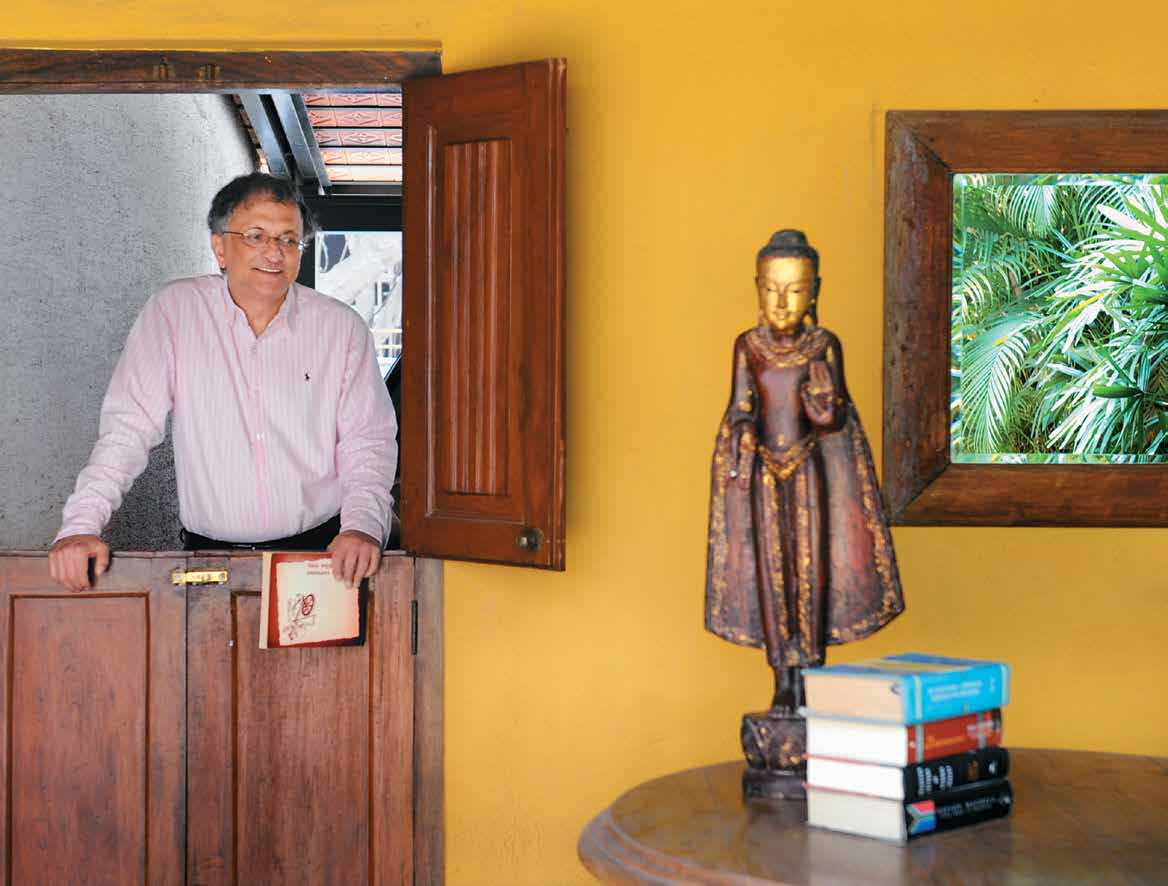The academic can complicate what seems simple even while simplifying the seemingly complex —that’s what made Ram Guha a pioneer of sorts as a writer of history.

IT may be best for me not to begin my recollections of Ramachandra Guha along the standard template that recommends the phrase “The first time I met...” The reason is that our first meeting was inconsequential. Apparently we met on a college badminton court 44 years ago, around July 1974. Since Ram didn’t go on from this badminton court to become Deepika Padukone’s father, this first encounter’s location, at least, was not an augury of the direction of Ram’s future fame.
I have no idea what Ram was doing near a badminton court in the mid-1970s because his interests lay in a corner of a different field, the cricket pitch. His agenda even then was anti-Hindutva, though it took a peculiar shape as it had got mixed up with his interest in cricket. His aim in those days was to disprove the Hindu idea of reincarnation by circumventing his own afterlife through becoming either Bishen Singh Bedi or Erapalli Prasanna in this life. Failing either of those two options, he seemed to have resig ned him self to a third, which was to become Gundappa Vishwanath.
Since I was not passionate about cricket, for the remainder of our college years Ram and I lived proximate lives without ever coming close. I knew roughly who he was, and I also knew precisely what ‘type’ he was—he was what was called in those days a ‘sports type’. This knowledge was a subconscious certainty somewhere inside me that if there was a fellow in our college who was never going to amount to anything intellectually, his name was Ram Guha. He would develop his muscles, grow into a hunk, even perhaps wear a turban, and the climax of his aspiration would be to draw Viv Richards out of the crease and bowl him round his legs. In short, to my mind Ram Guha was someone who could be safely written offand forgotten about.
Diese Geschichte stammt aus der April 09, 2018-Ausgabe von Outlook.
Starten Sie Ihre 7-tägige kostenlose Testversion von Magzter GOLD, um auf Tausende kuratierte Premium-Storys sowie über 8.000 Zeitschriften und Zeitungen zuzugreifen.
Bereits Abonnent ? Anmelden
Diese Geschichte stammt aus der April 09, 2018-Ausgabe von Outlook.
Starten Sie Ihre 7-tägige kostenlose Testversion von Magzter GOLD, um auf Tausende kuratierte Premium-Storys sowie über 8.000 Zeitschriften und Zeitungen zuzugreifen.
Bereits Abonnent? Anmelden

Layers Of Lear
Director Rajat Kapoor and actor Vinay Pathak's ode to Shakespeare is an experience to behold

Loss and Longing
Memories can be painful, but they also make life more meaningful

Suprabhatham Sub Judice
M.S. Subbulakshmi decided the fate of her memorials a long time ago

Fortress of Desire
A performance titled 'A Streetcart Named Desire', featuring Indian and international artists and performers, explored different desires through an unusual act on a full moon night at the Gwalior Fort

Of Hope and Hopelessness
The body appears as light in Payal Kapadia's film

Ruptured Lives
A visit to Bangladesh in 2010 shaped the author's novel, a sensitively sketched tale of migrants' struggles

The Big Book
The Big Book of Odia Literature is a groundbreaking work that provides readers with a comprehensive introduction to the rich and varied literary traditions of Odisha

How to Refuse the Generous Thief
The poet uses all the available arsenal in English to write the most anti-colonial poetry

The Freedom Compartment
#traindiaries is a photo journal shot in the ladies coaches of Mumbai locals. It explores how women engage and familiarise themselves with spaces by building relationships with complete strangers

Love, Up in the Clouds
Manikbabur Megh is an unusual love story about a man falling for a cloud. Amborish Roychoudhury discusses the process of Manikbabu's creation with actor Chandan Sen and director Abhinandan Banerjee